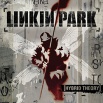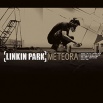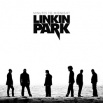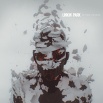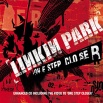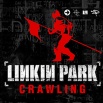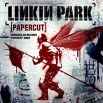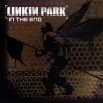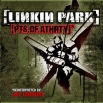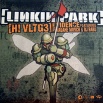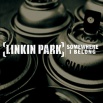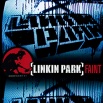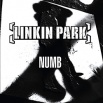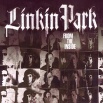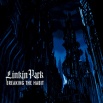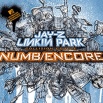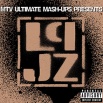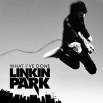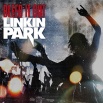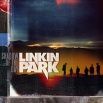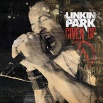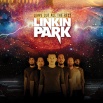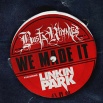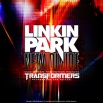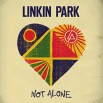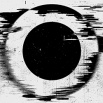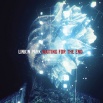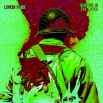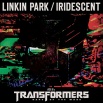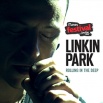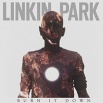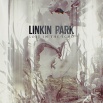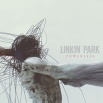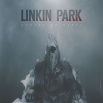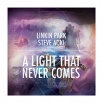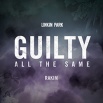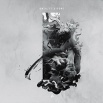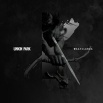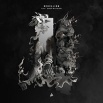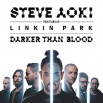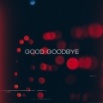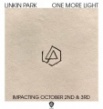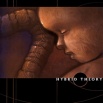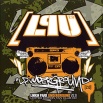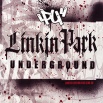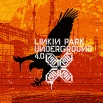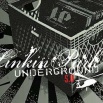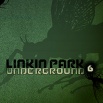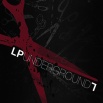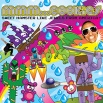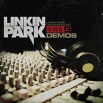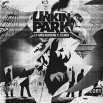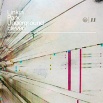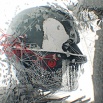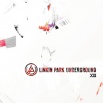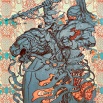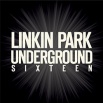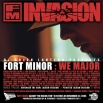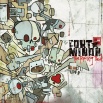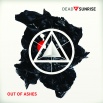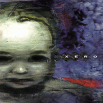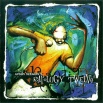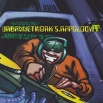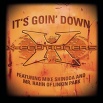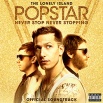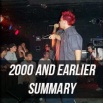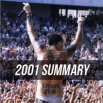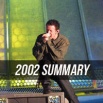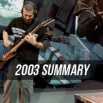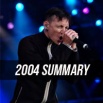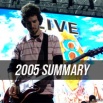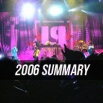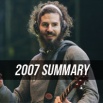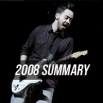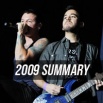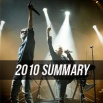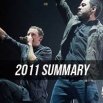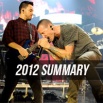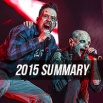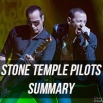No edit summary |
No edit summary |
||
| Line 1: | Line 1: | ||
<!--''[[Hybrid Party Of A Thousand Things]]'' is an unofficial digital box set consisting of demos from four Linkin Park albums: ''Hybrid Theory'', ''Living Things'', ''A Thousand Suns'' and ''The Hunting Party''. The title is an amalgamation of the titles of those albums. | <!--''[[Hybrid Party Of A Thousand Things]]'' is an unofficial digital box set consisting of demos from four Linkin Park albums: ''Hybrid Theory'', ''Living Things'', ''A Thousand Suns'' and ''The Hunting Party''. The title is an amalgamation of the titles of those albums. | ||
| Line 6: | Line 5: | ||
I would caution against this thinking. Not to be a buzzkill, but just because I believe that someone was responsible for initializing the drives for each instrument (the MPC, the respective hard drives with the concert stems, the Ableton files, etc.), but they clearly didn’t do their job. That’s a win for us. That said, we’re taking files we weren’t expected to have and reconstructing unreleased LP material from it. | I would caution against this thinking. Not to be a buzzkill, but just because I believe that someone was responsible for initializing the drives for each instrument (the MPC, the respective hard drives with the concert stems, the Ableton files, etc.), but they clearly didn’t do their job. That’s a win for us. That said, we’re taking files we weren’t expected to have and reconstructing unreleased LP material from it. | ||
==Background== | |||
In June 2019 over 9,400 audio files from Mike Shinoda's library of samples and sounds surfaced online after his Open Labs SoundSlate Pro PC was purchased from Reverb. They dated from ''The Hunting Party'' sessions as far back as to the Xero and Hybrid Theory days and many of them were accompanied by project files. In the light of this discovery, the LPLive comminuty came together in a collaborative effort to figure out how to open the projects and recreate the songs contained in them. Community members LPPanther, michalangelo, letdownagain, ArmoredMexican, graveguard, lpliveusername and SasstielExperience worked hard for over two months in order to bring the demos to life. Justin, Hahninator and bruh009 also have contributed to the analysis of the content and DCrecelius created artwork for each collection of demos. | |||
When first exploring the leaks, fans were only listening to individual drum sounds or samples (e.g. the sound of a bass drum being hit once) but once they started putting the sequence files into the right software, they were able to hear all of the sounds together as Mike had it on his MPC while creating demos. Everything is set essentially into two to twelve second sequences. For one demo, Mike might have completed ten different sequences for a song (e.g. intro, verse, chorus, etc.). After turning all of the sounds and samples into sequences, the next step was to put all of the sequences for each folder or song together to make a 10 to 60 seconds demo. Some of them only have a few of the patterns actually used in very short sequences which leaves a lot of the material unheard. | |||
Not everything is a full song or sounds like the same song across sequences and the problem is fans don't know how long Mike intended each sequence to run for or their order (e.g. 8 bars in a row of sequence one, 2 bars of sequence two, return to sequence one for 4 bars, etc.), so they could only guess. In those cases, the solution was to simply put the sequences together in numerical order to have a glimpse of how they might sound. | |||
The result is a digital boxset they've called ''Hybrid Party Of A Thousand Things'' featuring demos created for ''Hybrid Theory'', ''A Thousand Suns'', ''Living Things'' and ''The Hunting Party'' amounting to a total of 228 tracks. There are early versions of previously released songs and remixes from Recharged along with previously known titles that had never seen the light of day and many completely new titles, including an unreleased song created for the ''[[LP Recharge]]'' game and a couple of demos that seem to have evolved into "[[World's On Fire]]" on Mike Shinoda's ''[[Post Traumatic]]'' album. Besides a few voice samples, none of them have vocals. | |||
There are no demos from ''Meteora'' and ''Minutes To Midnight''. | |||
Couple of reasons... they could be recorded in another MPC / Hard drive, or this MPC was not even used at all, since you can use other instruments / programs to create music. Also, you need to consider that an MPC is like a Smartphone, a brand can sell updated versions with more stuff to do (more effects, more filters, more options, more customization) and you buy a brand new MPC the same way you throw your iPhone 5 in the drawer and buy an iPhone 7. | Couple of reasons... they could be recorded in another MPC / Hard drive, or this MPC was not even used at all, since you can use other instruments / programs to create music. Also, you need to consider that an MPC is like a Smartphone, a brand can sell updated versions with more stuff to do (more effects, more filters, more options, more customization) and you buy a brand new MPC the same way you throw your iPhone 5 in the drawer and buy an iPhone 7. | ||
| Line 28: | Line 24: | ||
Like I said, they could use other forms to record, other instruments, like a PC program instead of an MPC, or different brand MPC, different storage system, external storage, etc... Also, I bet the Xero stuff are just buried and forgotten, something like "oh crap, do I have a copy of this stuff somewhere else? you know what? I'm not touching it" | Like I said, they could use other forms to record, other instruments, like a PC program instead of an MPC, or different brand MPC, different storage system, external storage, etc... Also, I bet the Xero stuff are just buried and forgotten, something like "oh crap, do I have a copy of this stuff somewhere else? you know what? I'm not touching it" | ||
The reason why most of the songs are so short is because the majority of those demos originated from Mike's MPC and Maschine which are basically looping stations where he can create a beat or sound and loop it, playing it for as long as he wants. There's no need to create a 3 minute drum section when can create a 5 second drum section and loop it to play for 3 minutes (see ''STEPDRUM'' for a reference). They are basically instruments where he can create and record bits and loops and put them to play together. It's different from a PC hard drive where all those pieces from different sources and instruments can be brought together. | |||
These aren't all real demos in the traditional sense. They're more like proof of concepts that Mike probably showed the band. Further development of these ideas wouldn't have been stored on Mike's MPC or Maschine. More developed demos are probably saved as Pro-Tools sessions on his home studio's hard drives. Most of these are just ideas, basically bits of music produced by the band, things that Mike created and were not necessarily used in official material. They give an insight into Linkin Park's writing process. When working on an album, the band produces a lot of music that they consider "bad" or "trash" (as seen on making of's). A big percentage of what is produced isn't used and is generally stored or trashed without coming out to the general public. There's scrapped, reused and abandoned material. Some demos have been revisited while they were creating the next album and some of the sounds created for a song have been repurposed for others. Samples created back when the band was first starting were still being used up to 2013-2014 either for new songs or during live shows. Maybe some of these things will still be reused someday. It is also important to note that some of these contain sample packs (or just individual samples) that are not necessarily by the band. Titles such as "JoBurg" and "Auckland2013" also serve as evidence of how Mike is constantly working on new music while on tour. | |||
==Disc 1: Hybrid Theory Demos== | ==Disc 1: Hybrid Theory Demos== | ||
Revision as of 23:10, 4 August 2019
Recent Articles<recent /> |
Welcome to Linkinpedia!
Started in June 2015 alongside Fort Minor's comeback and released on September 19, 2016, this is a project by LPLive (Linkin Park Live) to create the most accurate wiki on the Internet for Linkin Park and their side projects. Instead of integrating a wiki inside our own website, we made the decision to launch a wiki as a brand new, standalone project.
The wiki contains over 500 pages of content and information ranging from the background information of songs to their live histories. We're launching Linkinpedia as a "work in progress" - there are missing pages AND there is missing info in the current pages. With hundreds of articles written, it will take some time to properly complete the wiki.
Due to fans and anyone being able to freely edit Wikipedia and other Linkin Park wikis, misinformation has spread throughout the community along with an incredible amount of inaccuracies about the band. Since Linkinpedia will be locked to the public and written, reviewed, and posted by members of LPLive's staff, we hope to correct any common mistakes out there about Linkin Park as well as to inform you as accurately as possible all about the band, their releases, their live shows and tours, and much more.
Feel free to browse Linkinpedia via the column on the left of the page. Fans and site members are welcome to submit corrections, mistakes, and more information to Linkinpedia via a link on the left.
Studio Albums
Singles
LP Underground
Side Projects
Other Releases
She Couldn't | Pictureboard | Unreleased | Little Boxes | Lockjaw | Complimentary | Bruiser | Space Station | Asteroids
Lists
Songs | Available Demos | Official Music Videos | Official Remixes | Unreleased Songs | Live Covers, Collaborations & Solos | Official Live Releases | Digital Souvenir Packages
Touring Summaries
Disclaimer
We fact check all of our information before adding it to Linkinpedia, hence why it took over 15 months and 13,000~ page edits to just launch the project. We always cite as many sources as possible for new information, and we use the highest available quality for artwork that we add.
Linkinpedia / LPLive does not own any artwork or any pictures, and we're not using any for profit, etc. We will remove any photo by request. Our Photo Disclaimer, the same as LPLive's, can be found here.
This wiki is written by the fans, for the fans, with the goal of becoming the number one source of reliable, factually-correct Linkin Park information on the Internet. <metadesc>Linkinpedia is the internet's most comprehensive guide to Linkin Park.</metadesc> <metadesc content="Linkinpedia is the internet's most comprehensive guide to Linkin Park." /> {{#description2:Linkinpedia is the internet's most comprehensive guide to Linkin Park.}}
